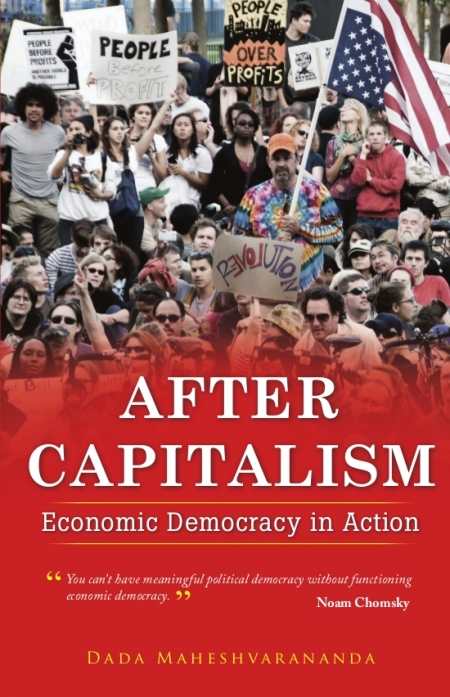After Capitalism
Economic Democracy in Action
The Progressive Utilization Theory, or PROUT, was the brainchild of the late Indian philosopher Prabhat Ranjan Sarkar, who created it as an economical and social theory that would provide an alternative to capitalism and communism. In After Capitalism: Economic Democracy in Action, Dada Maheshvarananda—a monk and the head of the PROUT Research Institute of Venezuela—presents this decades-old theory as a solution to a number of society’s current ills.
Most of the book is simply an explanation of PROUT, and has the same strengths and weaknesses of the theory itself. While many of the goals advocated by Maheshvarananda and PROUT supporters—such as diminishing income inequality and promoting citizen cooperatives—are certainly admirable, the theory is often vague about how they would be achieved or what a transition to a PROUT economy would look like on a large scale.
The book has the same issue. In one section, Maheshvarananda goes into great detail explaining Sarkar’s alternate view of history as a cyclical struggle between four classes defined by their psychological types (as opposed to the economic types Marx used in his view of history), but the core principles of PROUT remain largely ill-defined. For example, one of the five central principles is “There should be maximum utilization of the physical, metaphysical and spiritual potentialities of the unit and collective bodies of human society.” The author defines this principle as meaning a balance between individualism and collectivism, but even that offers little sense of how it would actually apply in practice. To take another example, Maheshvarananda correctly notes how the creation of generic drugs at lower costs than those charged by major pharmaceutical companies allowed many people in the developing world to prolong their lives. But while praising these generics, he does not address a way to develop new drugs without the profit-driven major pharmaceuticals. Too often, After Capitalism will seem naively unrealistic to opponents of PROUT’s vision while simultaneously obscure and lacking in specifics for those who would like to see its principles applied.
Maheshvarananda is more effective in his critique of how current economic systems have created global wealth inequality, and at citing statistics for how poverty has spread even in wealthier nations. The most interesting parts of the book, however, are the guest contributions, which serve as case studies of using PROUT principles in specific, smaller-scale projects around the world. While these contributions are quite short, they offer some of the detail lacking in the overall treatise. After Capitalism reads as a thorough recounting of the PROUT philosophy, but doesn’t make a compelling enough case for how that philosophy can prove practical.
Reviewed by
Jeff Fleischer
Disclosure: This article is not an endorsement, but a review. The publisher of this book provided free copies of the book and paid a small fee to have their book reviewed by a professional reviewer. Foreword Reviews and Clarion Reviews make no guarantee that the publisher will receive a positive review. Foreword Magazine, Inc. is disclosing this in accordance with the Federal Trade Commission’s 16 CFR, Part 255.

